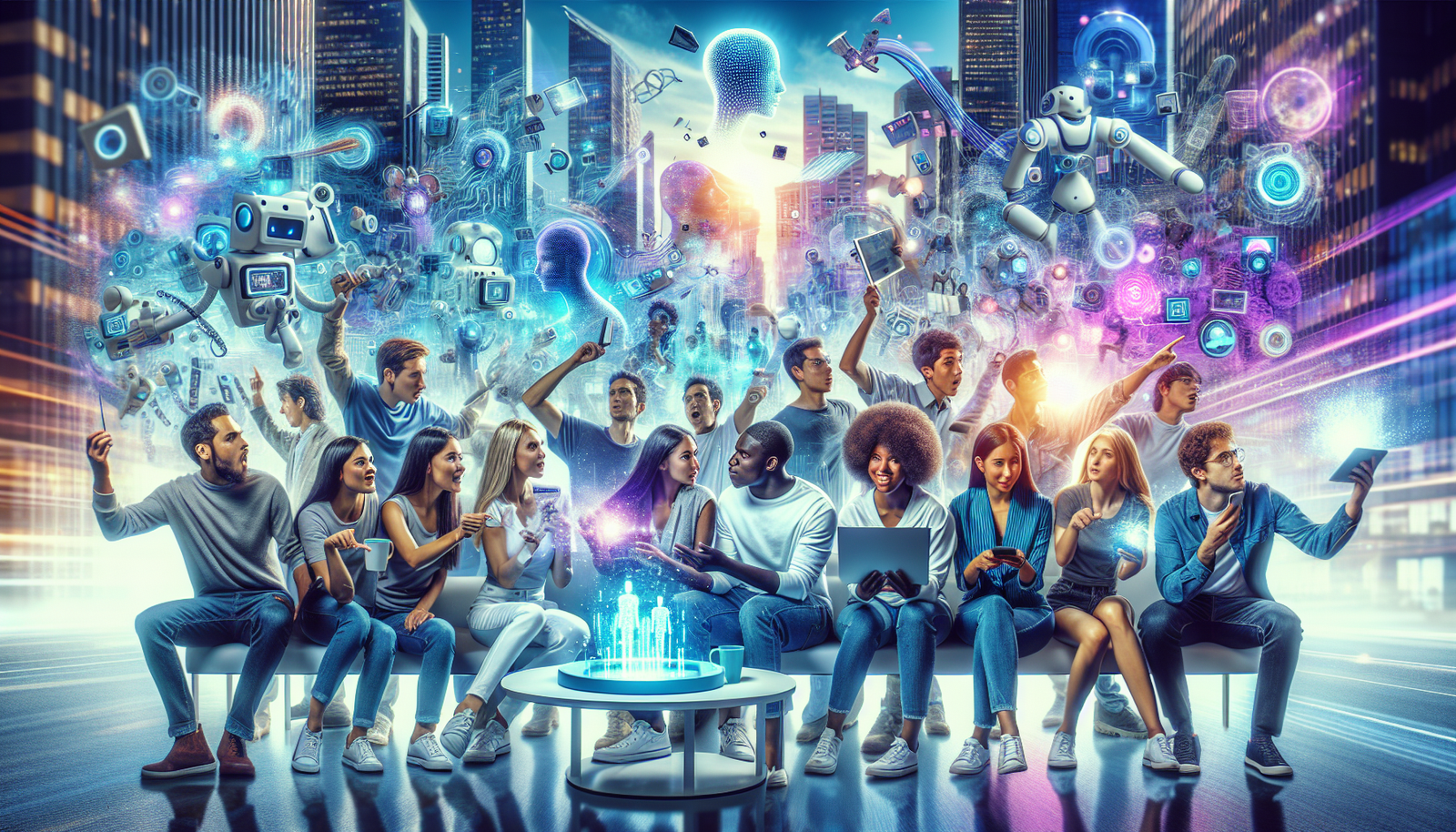The revolution of artificial intelligence (AI) profoundly impacts every dimension of our existence, even redefining our daily interactions. *The power of algorithms transforms entire industries*, creating unprecedented opportunities while raising pressing ethical questions. *This technological turning point sparks debates about privacy, accountability, and biases*, inviting societies to evolve accordingly. *The future of AI seems promising*, but it demands deep reflection on its societal implications.
The stakes of the AI revolution
The current revolution of artificial intelligence (AI) redefines the contours of multiple economic sectors, deeply transforming our interactions and methods of work. This transformation relies on sophisticated algorithms that modify our daily processes, each of their implications resonating in social and economic spheres.
The global AI market reached a valuation of $638.23 billion in the fourth quarter of 2024, with growth forecasts that could push its value to $3.6 trillion by 2034. Widespread adoption in various industries underpins this rise, demonstrating the transformative potential of this technology.
Sectoral applications
Health
In the healthcare field, about 38% of major healthcare providers are integrating advanced AI-based diagnostic tools. These technologies enhance the accuracy of diagnoses and optimize medical treatments, providing crucial support for critical decision-making.
Finance
The financial sector also benefits from impressive integrations of AI. Indeed, this technology is expected to contribute about $15.7 trillion to the global economy by 2030. Algorithms enhance risk management, customer data analysis, and service personalization.
Commerce and cybersecurity
In commerce, AI could generate between $400 billion and $660 billion annually through enriched customer experiences. Cybersecurity, meanwhile, discovers a growth potential of 23.6% by 2027, thanks to intelligent security technologies capable of countering increasing threats.
Lifestyle transformed by AI
Current innovations in AI also aim to automate daily tasks perceived as mundane. The emergence of digital twins allows users to manage aspects such as scheduling, email responses, or research. These assistant tools significantly increase productivity.
Twin Protocol, a cutting-edge platform, illustrates this change by offering dynamic digital representations that can evolve with their users. By using learning algorithms and decentralized ledger technologies, individuals maintain control over their digital identity.
Adaptability
These digital twins provide not only information; they are designed to understand their environment and learn continuously. With a strong commitment to data protection, Twin Protocol ensures that each user retains control over their digital identity.
The future of AI
The potential of AI exceeds simple current applications. This technology could, in the next ten years, profoundly reshape various sectors, from personalized education to industrial optimization. The transition of AI to a transformational partner offers unprecedented perspectives.
Advancements allow glimpses of innovations that transcend pure technology. Applications are becoming increasingly integrated into our lives, shaping expectations and opportunities at every stage of technological development.
Training, optimization projects, and education represent unexplored application fields; thus, the creation of digital twin technologies could pave the way for new practices, redefining our understanding of intelligence itself.
FAQ about the AI revolution
How is AI transforming our daily lives?
In daily life, AI simplifies routine tasks by automating processes, enhances recommendations through data analysis, and optimizes our interaction with technology, thus making our experiences more personalized:
What are the major economic impacts of artificial intelligence?
Artificial intelligence has enormous potential to generate economic growth, contributing to productivity increases in various sectors such as healthcare, finance, and retail, with estimates going up to several trillion dollars of impact by 2030:
What role does AI play in the healthcare sector?
In the healthcare sector, AI is used for advanced diagnostics, medical image analysis, and treatment management. For example, around 38% of major healthcare providers integrate AI diagnostic tools to improve patient care:
Can artificial intelligence create job opportunities?
While AI can automate certain jobs, it also creates opportunities in the design, development, and management of AI systems, requiring new skills and tailored training:
What are the ethical challenges associated with AI?
The ethical challenges include data privacy, algorithm transparency, and the need to ensure that AI does not reproduce pre-existing biases in the data, which could exacerbate inequalities:
How does AI contribute to online security?
AI enhances cybersecurity through intelligent technologies that detect and respond to threats in real time, with a projected growth of 23.6% in this sector by 2027:
What future lies for artificial intelligence in the professional environment?
The future of AI in the professional environment is promising, with growing applications in task automation, predictive analysis, and strategic decision-making, allowing workers to focus on more creative and innovative aspects:
How can companies effectively integrate AI?
Companies must first identify areas where AI can provide the most value, create a roadmap for integration, and train their employees to maximize the benefits of this technology:
What types of algorithms are commonly used in AI?
The most common algorithms include neural networks, decision trees, and reinforcement learning algorithms, each having specific applications in data processing:
Can the AI revolution continue without regulation?
It is essential to establish regulations to ensure responsible use of AI, thus protecting individuals’ rights and ensuring transparency and fairness in AI systems:
What is the difference between general AI and specialized AI?
General AI refers to a type of AI capable of understanding and learning any human task, while specialized AI is designed to perform specific tasks, such as image recognition or natural language processing :






